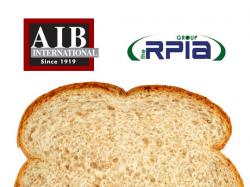AIB International To Partner With RPIA Group
March 7, 2012 | 2 min to read

Manhattan, Kan. – An agreement with the Resourceful Purchasers in Action (RPIA) Group will provide the AIB International School of Baking access to a niche market of retail bakers poised to expand their operations and who need professional training. This understanding between AIB & RPIA will produce positive results for both organizations.
RPIA, based in Indianapolis, Ind., is a cross between a trade group, a buying group, and an advisory group. “Annual sales of $750,000 are the minimum for membership in the RPIA”, said Rick Crawford, Managing partner of RPIA. “Gold members have retail sales of $1 million or more”. Having been founded in September of 2001, RPIA is on a steady growth to provide member companies with benefits that help them grow.
The RPIA is a national group with fine bakers across the country. The RPIA Group is made up of the highest volume retailers. One member has three stores that do $40 million a year between them. One member does $5 million out of a single location with all of the production run by a 23-year-old young man; who wouldn’t be able to do it except for the AIB education he received, Crawford said. “We represent 97 member companies with over 1,000 retail operations, with an economic impact of $750 million in sales.” He said the average company in RPIA has about 66 employees, big enough to invest in training and in converting to third party audits for the first time.
The talks that resulted in the agreement started after Crawford spoke at the California Raisin Marketing Board “Best Raisin Bread” Contest held at AIB in October 2011. Mr. Ken Embers of the AIB approached Crawford over a joint relationship; because RPIA’s members are growing, and many of them are on the cusp of needing AIB’s services and products.
School of Baking Vice President Dr. Kirk O’Donnell, who will participate in an RPIA program March 7 in Pittsburgh, Penn., says RPIA helps retail bakers save money by providing them with the infrastructure to get the best price on a wide variety of goods and services from ingredients to insurance.
O’Donnell said he plans to make these expanding retail bakeries aware of AIB training resources, so that these businesses can continue to grow with persons understanding and appreciating the science and technology of baking. Most bakers learn through experience, which usually takes one of two forms: through observing another baker or through trial and error. Both of these options have serious limitations. AIB offers an alternative that reduces costs, increases opportunities for innovation, and appreciates, rather than depreciates, in value. AIB teaches the application of scientific concepts to producing bakery products. By understanding the function of ingredients, formulation of bakery products, the process control points, and factors that influence product attributes during both production and storage, AIB course participants can create new products and make adjustments to keep existing product quality consistent. This gives the consumer more confidence in the brand. Many growing companies with successful bakery brands invest in AIB training.
Source: AIB International School of Baking
